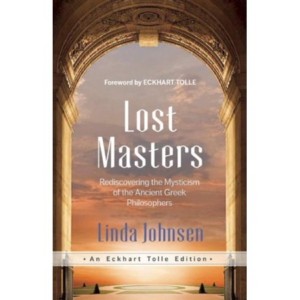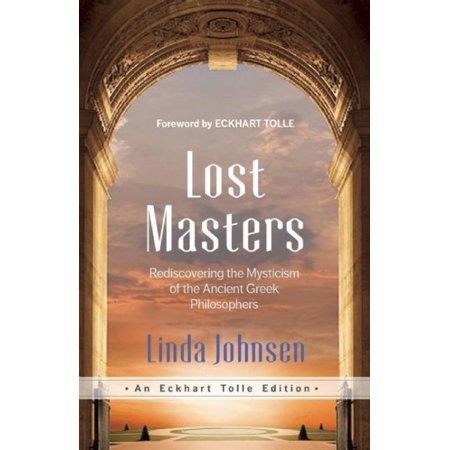 LINDA JOHNSEN
LINDA JOHNSEN
I didn’t have a lot of patience for the Greeks. Like many children of the 1960s, I turned to the Hindu Upanishads not Plotinus’ Enneads for enlightenment, to India’s Ramayana and Mahabharata not Greece’s Iliad and Odyssey for inspiration, and to Krishna and Buddha rather than Homer or Socrates for heroes. Compared to Hindu seers and Buddhist siddhas, the much-vaunted Greeks seemed like lightweights.
Ironically, it was my Indian researches that led me back to Greece. I learned that a Greek magus named Apollonius of Tyana had visited India in the first century C.E. and that a fairly detailed account of his travels had actually survived. Reading Apollonius’ story was a galvanizing experience, revealing astonishing connections between the Greek, Roman, Egyptian, Persian, and Indian cultures, which most modern historians neglect.
My interest in the Greek thinkers was piqued: How did it happen that many of their doctrines and religious practices matched the teachings of the Indian sages so closely? Was Apollonius correct when he claimed that the Greeks had learned their doctrines from the Egyptians—and the Egyptians learned them from India?
So I returned to the Greeks, reading the portions of Plato my Jesuit professor had advised us students to skip. Sure enough, there was the juice, the living spirituality that so appalls academics today but kept the greatest minds of the Western world enthralled for more than a thousand years.
I went back to the original Greek historians, such as Herodotus, Diogenes Laërtes, Diodorus Siculus, and Plutarch, in an effort to learn what the ancients said about their own tradition before modern scholars reinterpreted it for them. I was continually amazed at how similar the long-lost Greek world was to the India I travel through today, where the perspective of the ancients still lives in Bengali villages and Varanasi enclaves and the palm jungles of Kerala. The type of spiritual practices that Plotinus—perhaps the greatest of all the Hellenistic masters—described in his Enneads are as much alive in Himalayan caves today, where Plotinus is unknown, as they are moribund in American and European universities that claim to teach Plotinus!
It’s surprising that today yoga students can read Plotinus and instantly recognize the higher states of consciousness he was describing, correlating them point for point with the levels of meditative focus listed in India’s Yoga Sutras in 200 B.C.E. Yet Western scholars often ignore these very passages! They represent “Oriental contamination” of the pure Greek tradition, my professor claimed. And he was right—you can find Eastern influence throughout Greek thought.
Excerpted from Lost Masters: Rediscovering the Mysticism of the Ancient Greek Philosophers. Linda Johnsen has a master’s degree in Eastern studies and has done postgraduate work in the history of religions. She is the author of eight books on spirituality, including Daughters of the Goddess: The Women Saints of India and The Complete Idiot’s Guide to Hinduism.







